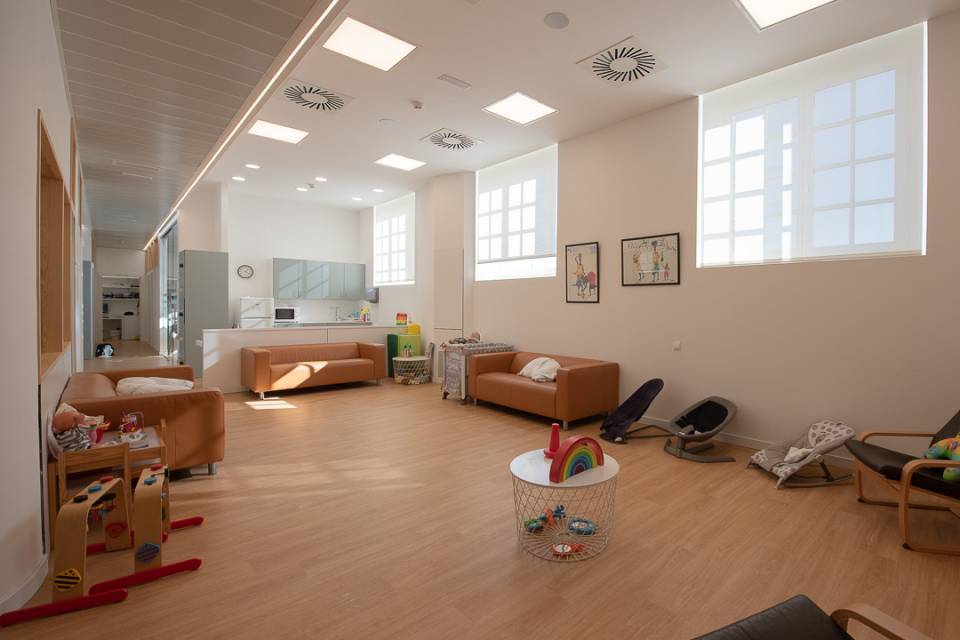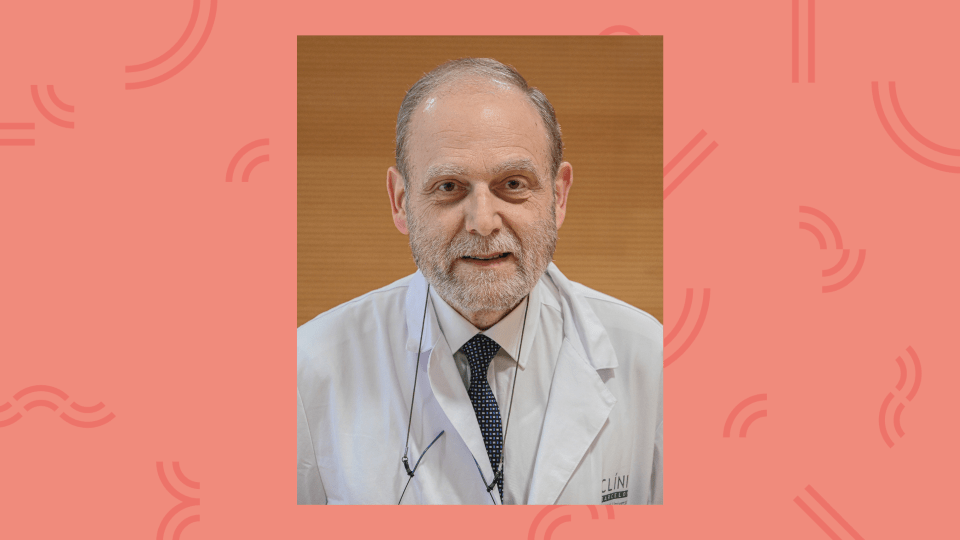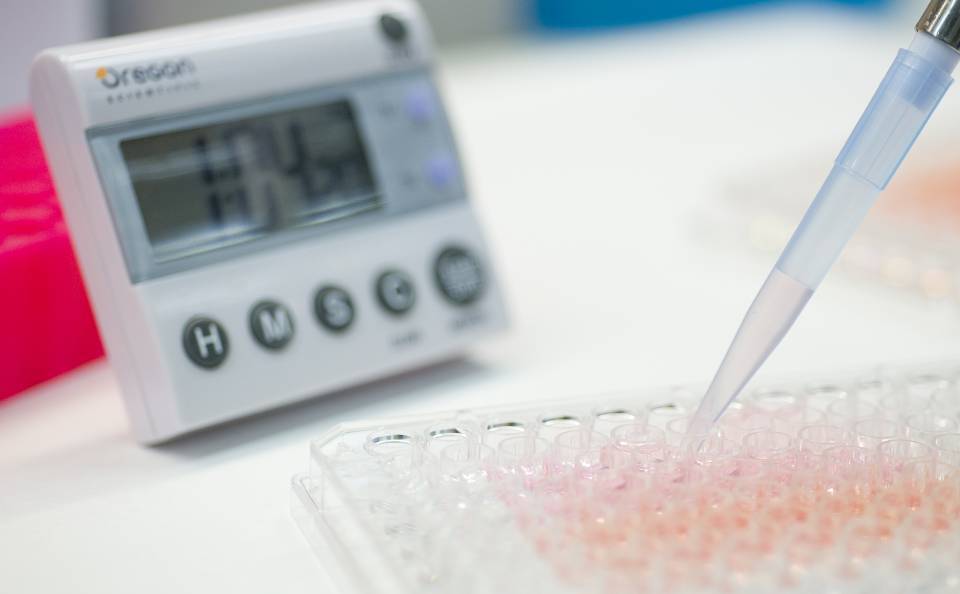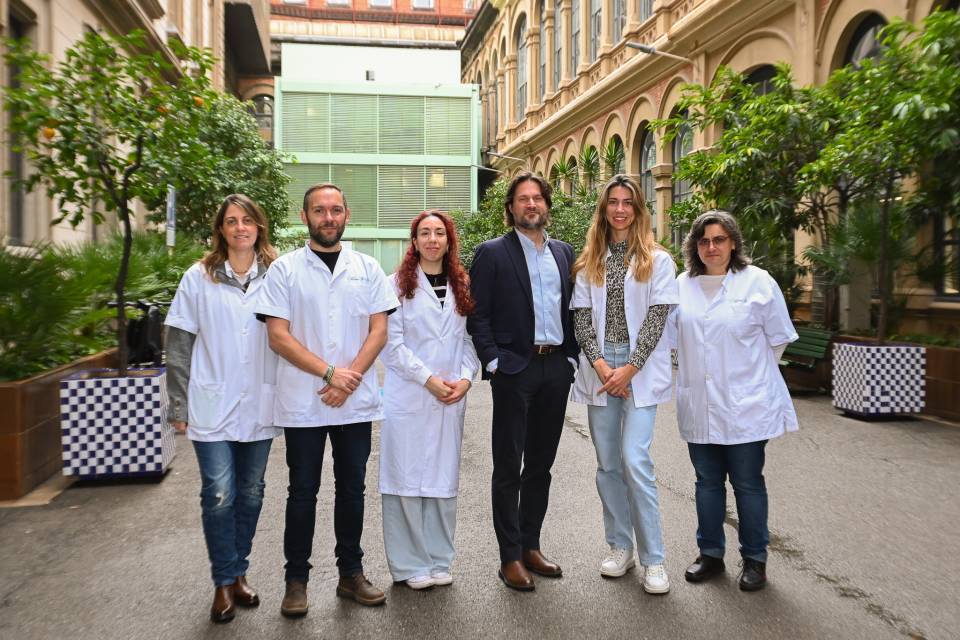After four years in operation, the Hospital Clínic de Barcelona is consolidating the perinatal mental health unit, the Clínic-BCN Mother-Baby Day Hospital. The unit is headed by Dr. Alba Roca, psychiatrist at the Perinatal Mental Health Unit at the Hospital Clínic de Barcelona. The Mother-Baby Day Hospital (MBDH) was opened in 2018, coordinated by Dr. Lluisa García-Esteve, psychiatrist at the Hospital Clínic- IDIBAPS, and it was the first hospital of these characteristics in Spain. Recently, a study was published in the Revista de Psiquiatría y Salud Mental [Psychiatry and Mental Health Journal], which described the first 150 dyads (mother and baby couples), treated at the MBDH.
The MBDH is a partial hospitalization unit, where mothers with moderate-severe postpartum depression can come with their babies and receive multidisciplinary and intensive treatment. Specific interventions are carried out to promote and increase bonding with the baby, maternal care and breastfeeding. Psycho-educational actions are also carried out focusing on the illness and the prevention of future episodes. This is all combined with psychopharmacological treatment.
For the study published in the Revista de Psiquiatría y Salud Mental, the first 150 women treated at the MBDH from 2018 to 2021 were selected. The average age of the mothers was 34 years and that of the babies 3.7 months. In the study, the socio-demographic and clinical characteristics were described and the mother-baby relationship was assessed, as were the mother’s anxiety and depression symptoms.
Significant improvements in the depression scale (EPDS), the anxiety inventory (STAI-E, the mother-baby relationship (PBQ) and functionality (HoNOS) were observed after the mothers had been treated at the MBDH. Eighty percent of the mothers had a psychiatric past history and 30.7% had required psychiatric in-patient admission. A major depressive episode was diagnosed in 48.7% of the mothers, and 54.7% had some type of psychiatric comorbidity. A third of the mothers admitted to hospital had a moderate-high suicide risk.
The study concludes that the MBDH is a unit that provides multidisciplinary care, by treating mothers with perinatal mental disorder in a comprehensive and intensive manner. It has obtained good results both in terms of anxiety and depression symptoms and in the containment of risk behaviours. It also facilitates detection and intervention for both bonding and infant care difficulties.
One in ten mothers will have postpartum depression in the first year of their baby's life
Perinatal mental disorders are considered a public health problem due to the impact they have on mothers and their children in both the short and the long term.
Postpartum depression is one of the most common maternal medical complications during the perinatal period. It is highly disabling both in terms of the symptoms suffered by the mother and the consequences on maternal parenting, self-care, feeding and bonding functions. It is currently described as a major depressive disorder with onset during the peripartum period (before, during or after childbirth and up to the first year). Twenty-five percent of mothers start a depressive episode in the last three months of pregnancy, whilst 20% present symptoms after the sixth week after delivery, with the onset being very variable. The treatment for this disorder requires a multidisciplinary, intensive and individualized approach. Units such as the MBDH achieve all of this, as well as providing a space where mother and baby can come together.




